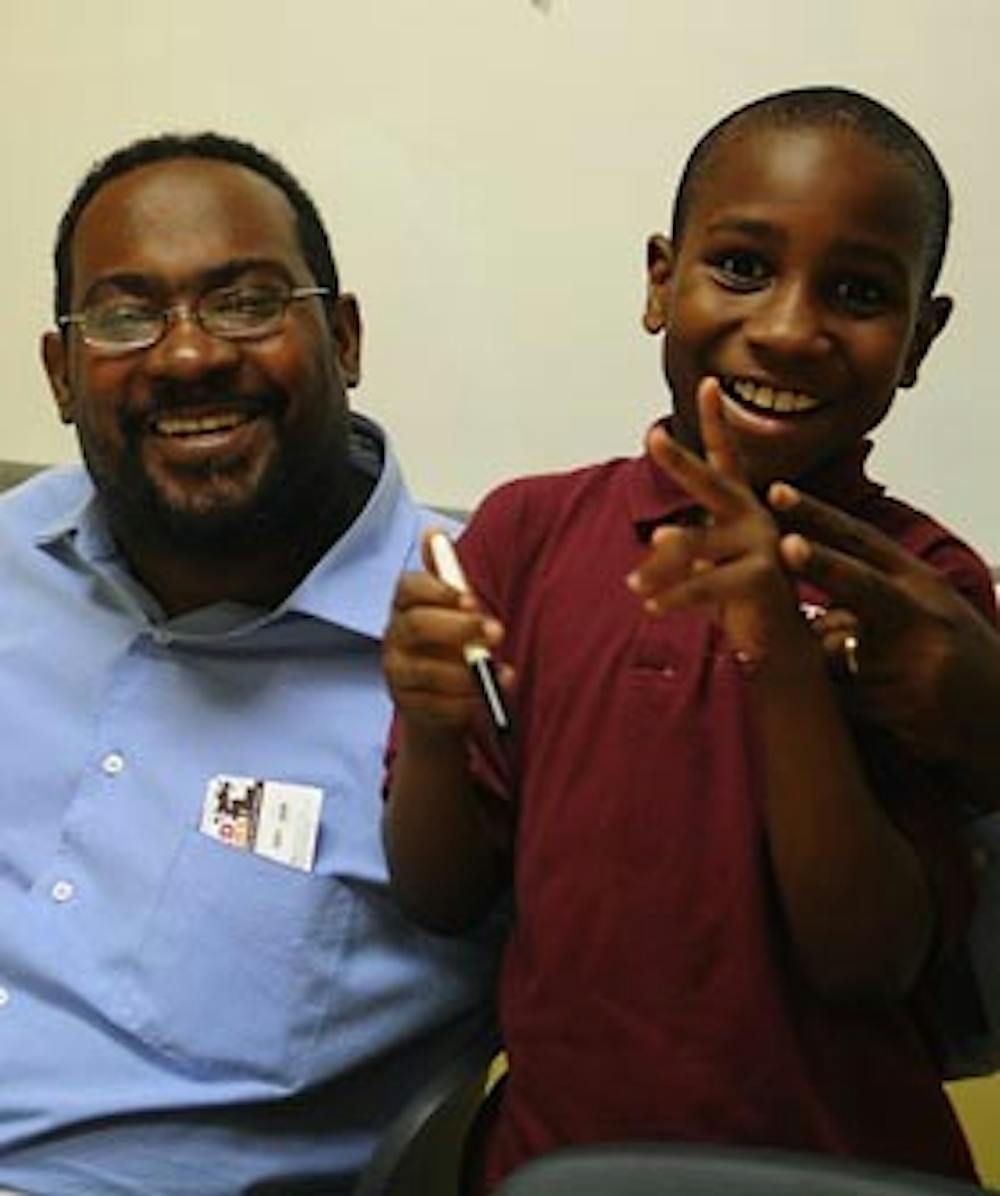At first glance, the children Chad Lassiter mentors seem pretty average - they like going to the park and playing basketball. But they also suffer from separation anxiety, trauma and post-traumatic stress disorder.
Psychological disorders like these are common for the children of incarcerated parents. That's why Lassiter, a 2001 School of Social Policy and Practice alumnus, helped found Mentoring Children of Prisoners a little over a year ago to match these children with mentors.
The mentors help them deal with academic or social problems, or even to just provide a bit of friendly support.
Also the president of Black Men at Penn - a group within SP2 dedicated to connecting Penn with Philadelphia black communities - Lassiter became determined to take a more active role in helping the families of the incarcerated while serving on the Board of Trustees for Philadelphia prisons.
He co-founded the mentoring program in collaboration with Fostering, Adopting and Mentoring to Improve the Lives of Youth (FAMILY, Inc.), headed by his wife, Wanda Lassiter.
"Research has demonstrated the benefits of mentoring - our program is evidence-based," explained Chad, who is also an adjunct professor at West Chester University's Undergraduate School for Social Work.
Mentors, who undergo a screening process before interacting with mentees, can include anyone from corporate professionals to city government members. Each mentor is assigned one mentee. Women are assigned girls, while men are assigned boys. On average, each mentor meets with his or her mentee for one hour a week.
In addition, the program often receives free tickets to events in Philadelphia, such as local football games, and mentors are encouraged to take mentees to these events.
Black Men at Penn Vice President and SP2 alumnus Darin Toliver mentors Kareema Mack, age 9, and her 8-year-old brother Shaheed Cooper.
"We play games and go out [with Toliver]," Mack said. Cooper added that sometimes they go to the park and play basketball.
"I believe that mentoring can potentially change the outcome of youth whose parents are incarcerated," Chad said, adding that mentors also "explore conscious and unconscious biases that relate to this population."
However, Wanda explained, the program has experienced particular difficulty recruiting men - specifically black men - as mentors, so many young boys are left without mentors.
"We are trying to come up with some type of strategy to get this population more interested," she said. "We only ask for one hour per week, on average. We go to churches [and] barbershops, and we try to hit up fraternities."
The program has recently initiated a partnership with DuBois College House, so that Penn students may also become mentors.
"We are combating the stigma around incarcerated parents," Chad said. The children participating in the program "are good young people. There should be no shame."



